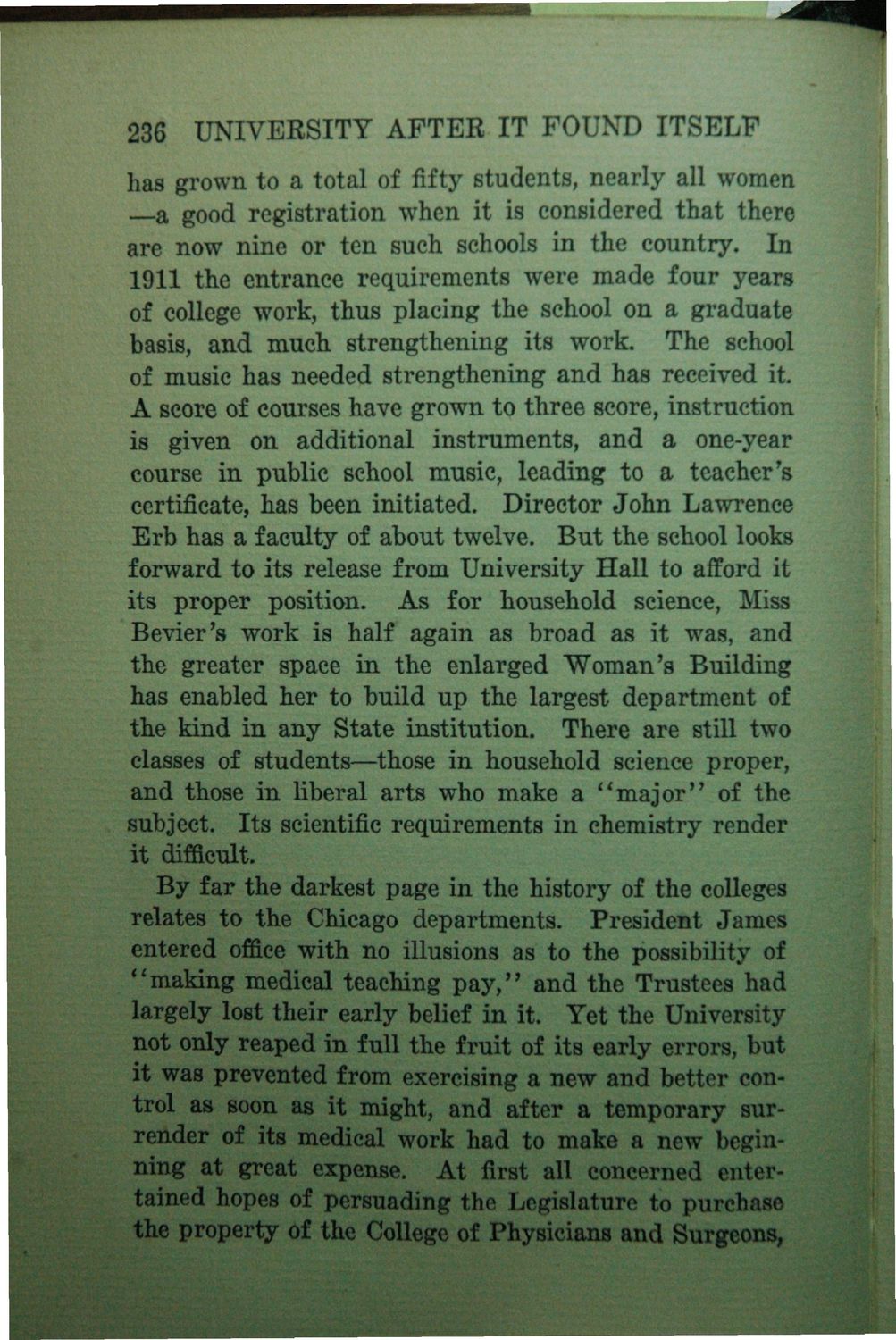| |
| |
Caption: Book - History of the University (Nevins)
This is a reduced-resolution page image for fast online browsing.

EXTRACTED TEXT FROM PAGE:
236 UNIVERSITY AFTER IT FOUND ITSELF has grown to a total of fifty students, nearly all women —a good registration when it is considered that there are now nine or ten such schools in the country. In 1911 the entrance requirements were made four years of college work, thus placing the school on a graduate basis, and much strengthening its work. The school of music has needed strengthening and has received it. A score of courses have grown to three score, instruction is given on additional instruments, and a one-year course in public school music, leading to a teacher's certificate, has been initiated. Director John Lawrence Erb has a faculty of about twelve. But the school looks forward to its release from University Hall to afford it its proper position. As for household science, Miss Bevier's work is half again as broad as it was, and the greater space in the enlarged Woman's Building has enabled her to build up the largest department of the kind in any State institution. There are still two classes of students—those in household science proper, and those in liberal arts who make a "major" of the subject. Its scientific requirements in chemistry render it difficult. By far the darkest page in the history of the colleges relates to the Chicago departments. President James entered office with no illusions as to the possibility of "making medical teaching pay," and the Trustees had largely lost their early belief in it. Yet the University not only reaped in full the fruit of its early errors, but it was prevented from exercising a new and better control as soon as it might, and after a temporary surrender of its medical work had to make a new beginning at great expense. At first all concerned entertained hopes of persuading the Legislature to purchase the property Of the College of Physicians and Surgeons,
| |